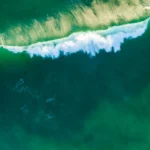Legally a “legal person” is any person or ‘thing’ that can do the things an everyday person can usually do (like, sign contracts, file cases, own land, etc). A “legal person” has rights and responsibilities similar to a living being even if it is not human. Apart from people, companies are also considered “persons” legally.
For the first time ever the Whanganui River in New Zealand was also made a “legal person” by the government. This river, officially known as Te Awa Tupua, is the first river in the world to be considered a legal person.
This official recognition of the river aims to acknowledge the historical and cultural importance of the river to New Zealand’s Maori tribal people. It also aims to save the river and surrounding areas from pollution.
The Maori people are the Indigenous (original) Polynesian people of New Zealand. The name for New Zealand in the Maori language is Aotearoa.
However, New Zealand became a colony of Britain (similar to India) from 1841 to 1907. After colonialists came, Whanganui River became very polluted due to industries, etc. The Maori tribals fought to save the river for many, many years. They protested and filed cases and requested the government.
Finally, in 2017, it became the first river in the world to be considered a legal person. Now, it has two guardians appointed to speak on its behalf and cannot be treated carelessly.
Other countries have also followed New Zealand’s example. Bangladesh has given all its rivers legal rights while India has made the Ganges and Yamuna Rivers as legal persons.








